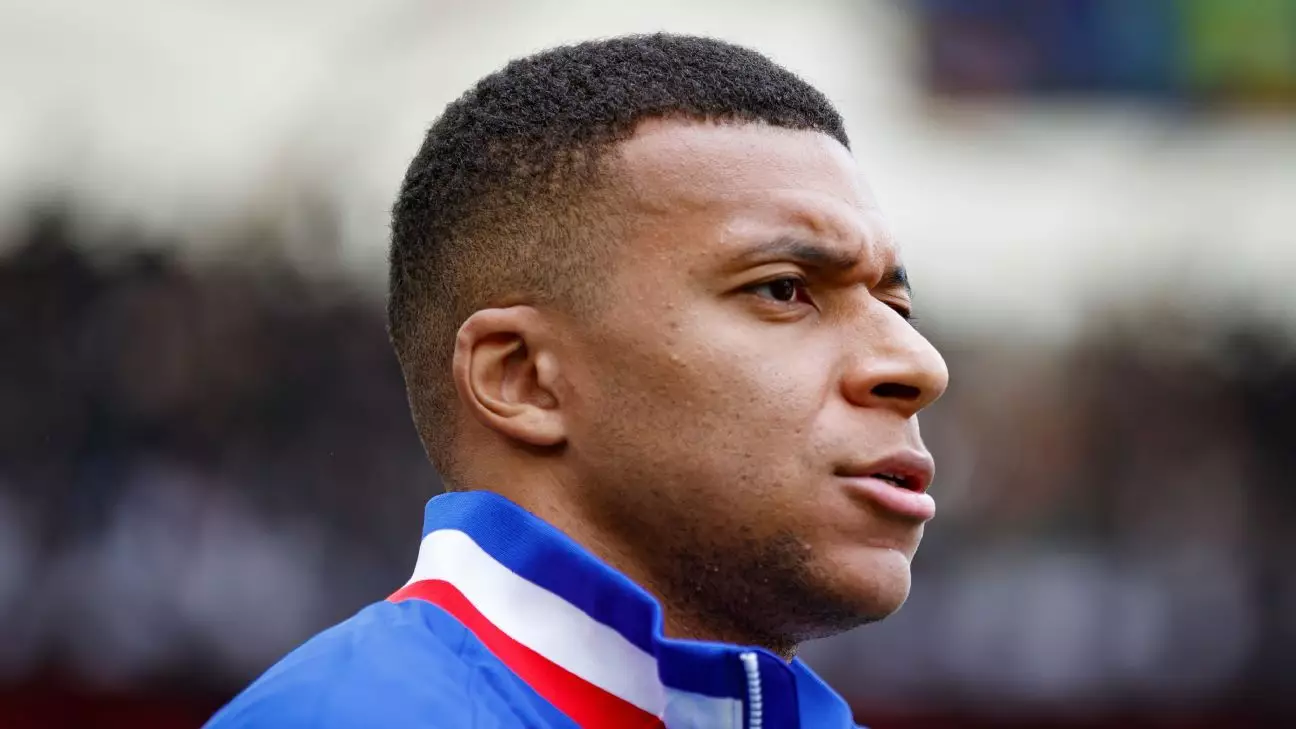Kylian Mbappé, one of football’s brightest stars, has officially lodged a serious legal complaint against Paris Saint-Germain (PSG), alleging moral harassment. The Paris prosecutor’s office recently confirmed this development, shedding light on Mbappé’s grievances regarding unpaid wages—a staggering €55 million ($61 million). This legal maneuver does not merely stem from a financial dispute; it harbors layers of frustration regarding his treatment during a tumultuous end to his tenure at the club. The conflict underscores a broader issue in professional sports: the balance of power between clubs and players, and the responsibility of clubs to maintain respectful relationships with their top talent.
The Concept of Lofting
At the core of Mbappé’s allegations is a practice colloquially known as “lofting,” a term specific to the French sports vernacular that describes the exclusion of a player from the main squad for various reasons, whether they be sporting, disciplinary, or administrative. This tactic has garnered criticism for its lack of transparency and potential impact on a player’s mental well-being. Mbappé claims he was subjected to such treatment after revealing he would not extend his contract, a decision that was met with hostility from PSG’s management.
The implications of lofting go beyond mere exclusion; they delve into psychological territory, impacting a player’s confidence and sense of belonging. Being sidelined while feeling unjustly treated can lead to a whirlwind of emotions and exacerbate tensions that already exist. Mbappé’s stance brings to light not only his personal narrative but also the need for clubs to re-evaluate their methodologies of managing player relations, especially with marquee talents who contribute significantly to the team’s success.
Frustrations Behind Closed Doors
Mbappé’s conflicts with PSG didn’t blossom overnight. Throughout his time at the club, he expressed frustration over unmet expectations, particularly regarding recruitment and team-building efforts promised to him at the beginning of his mega-contract in 2022. Fans witnessed his emotional rollercoaster as his initial excitement of extending his stay quickly faded into disappointment upon realizing that the club was not fulfilling commitments to bolster the squad around him. Promises of signing high-caliber players were broken, raising questions about the future direction of PSG, a club eager to win the Champions League.
When he made his decision to inform the club of his intention not to activate his contract extension option, it sent shockwaves through the organization. PSG’s reaction can be viewed as a desperate attempt to retain control; the decision to leave him out of the preseason tour to Japan and South Korea was not just strategic but also punitive. It illustrated their unwillingness to sustain a relationship that they perceived as deteriorating, one marred by diverging goals and mounting dissatisfaction.
The Fallout
The conclusion of Mbappé’s PSG saga was anything but smooth. The atmosphere turned hostile, as evidenced by fans booing him during his final home game. Such fan reactions are typically reserved for players who have displayed evident disloyalty, though many would argue Mbappé had every right to act in his own interest. It serves as a striking example of the often-complex relationship between players and fans, where emotional investment can cloud judgment regarding a player’s motivations and intentions.
Notably, PSG found itself in a precarious position following Mbappé’s announcement. Rather than risk losing him for nothing at the end of the season, the management was left scrambling to either sell him or re-engage him in a manner that was deemed satisfactory. The club’s strategy exhibited a clear lack of appreciation for the human element of sporting contracts.
A Call for Change in Football Culture
These events spotlight the pressing need for cultural reform within the footballing world. The intersection between business and sports often results in relationships marred by misunderstandings and power struggles. As players like Mbappé take a stand against perceived injustices, the football community must listen.
In a landscape dominated by fluctuations in player mobility and public scrutiny, it’s vital for clubs to establish ethical frameworks that prioritize open communication and mutual respect. Mbappé’s allegations—if proven valid—may well serve as a turning point in how player-management relations evolve, encouraging clubs to treat their star players with the respect they deserve. As significant figures in the game demand accountability, it reflects the shifting dynamics in sports where players are no longer merely commodities, but individuals seeking fairness and dignity in their professional lives.


Leave a Reply